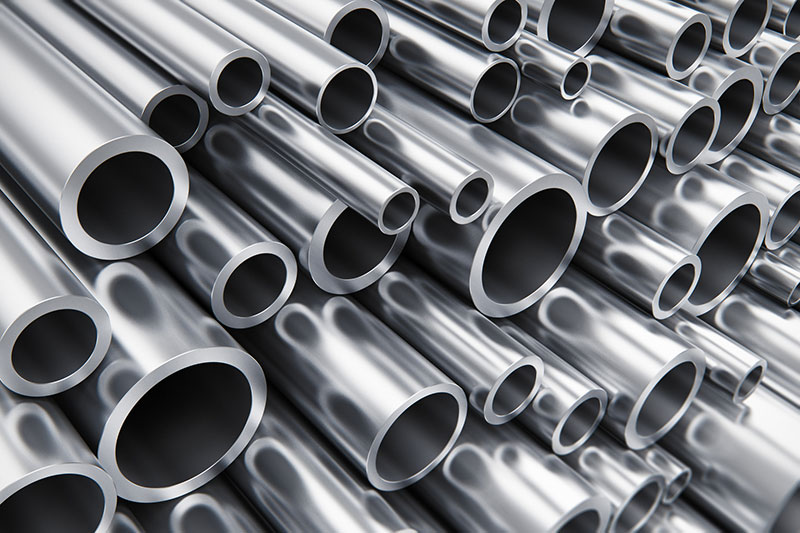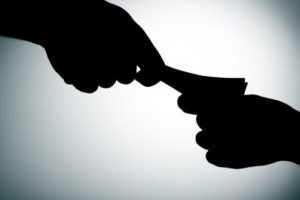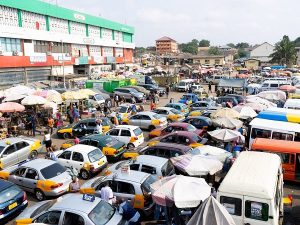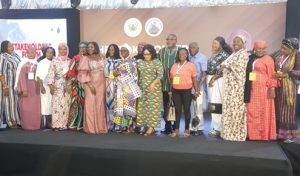Ghana International Trade Commission (GITC) has ruled that aluminium coils and circles from China are being dumped onto the Ghanaian domestic market, causing material injury and a threat of material injury to Ghanaian industry.
Professor Paul Kuruk, Vice-Chairman, GITC, on Thursday ruled on petition No. ADR-GITC /001/209 brought by Aluworks Limited.
The Commission calculated a weighted average dumping margin of 35.77 per cent for the subject product.
Accordingly, the Commission decided that the following definitive anti-dumping duties should be imposed on aluminium coils and circles originating in or imported from China: HS Codes 7606.91.10.00 – aluminium plates, sheets, strip, of a thickness exceeding 0.2mm.
He said material injury to the domestic injury was found to be in the form of the declines experienced by Aluworks with respect to its sales volumes, market share, return on investment, productivity, incoming cash flow, growth and utilization of product capacity.
He recalled that Aluworks submitted an application on May 8, 2019 to the Commission to investigate the alleged dumping of aluminium coils and circles originating in or imported from China.
He said the Commission found Aluworks to be the sole manufacturer of aluminium coils and circles in Ghana and therefore, received the application as a complaint filed by a domestic industry.
Prof Kuruk said the investigation was conducted within the framework of the GITC Act 2016, Act 926, and the GTIC Anti-Dumping Regulations (LI 2830) read with the World Trade Organisation Agreement on Implementation of Article VI of the General Agreement on Tariffs and Trade, 1994 (the Anti-Dumping Agreement).
He said the investigation was initiated after the Commission considered that there was prima facie evidence to show that the subject product was being imported at dumped prices and causing material injury and a threat of material injury to the Ghanaian domestic industry.
He said under Section 54 of the GITC Act, 2016 (ACT 926), “dumping” meant the introduction of a product into the commerce of Ghana at less than its normal value in the ordinary course of trade, for the like product when destined for consumption in the exporting country.
He said at the initiation of the investigation, the known exporters of the subject product, importers and interested parties were sent questionnaires to complete.
They included Lion Aluminium Products Ltd, Olive Aluminium Works, Asadek Roofing Ltd and Domod Aluminium Ltd.
Adding that, the trade representatives of China at the Chinese Embassy in Ghana were also notified of the Commission’s intention to investigate.
Prof Kuruk said the investigation period for dumping was from May 15, 2019 to March 13, 2020; stating that the injury analysis involved evaluation of data for the period January 2014 to December 2018.
He said after considering the facts available to it, the Commission made a preliminary determination that the subject product originating in Ghana was being dumped onto the Ghana market causing material injury and a threat of material injury to the Ghanaian industry.
He stated that subsequently, based on the details as contained in the Commission’s preliminary report, responses to the questionnaires, a hearing conducted on January 9, 2020, and other information on file, the Commission made a final determination that the subject product originating in or imported from China was being dumped onto the Ghanaian domestic market, causing material injury and a threat of material injury to the Ghanaian industry.
“In finding there is a causal link between the dumped product and material injury, the Commission took account of evidence including the increases in the volumes of the dumped product, absolute or relative to the domestic production or consumption; the increased market share of the dumped products; and the magnitude of the margin of dumping,” he said.
Mr Frank Agyekum, the Executive Secretary, GITC, said the Commission would ensure that local industries played their roles properly in national development for the good of the nation, adding that currently, there were five active cases and 16 petitions before it.












